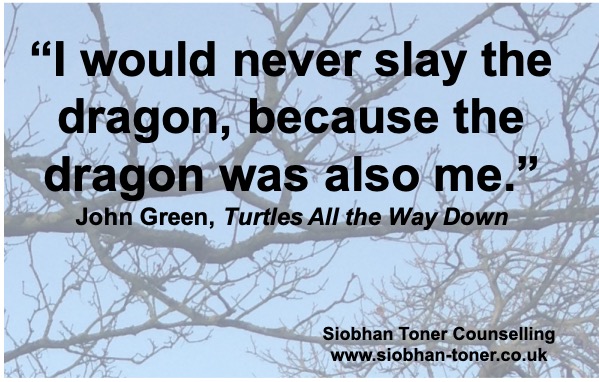
Thursday Thoughts


Counselling in London or online
Siobhan Toner offering individual one-to-one therapy in London or online

Following on from my post last week for those who are not in a position to look for a private counsellor, these are some thoughts and suggestions. Please note these are all England based.
Please be aware that most counsellors/therapists working privately are not able to take on clients and charge back to the NHS. The system isn’t designed that way. When seeing someone through the NHS or a charity, you usually have to work with the counsellor you are assigned unless there is a significant reason not to.
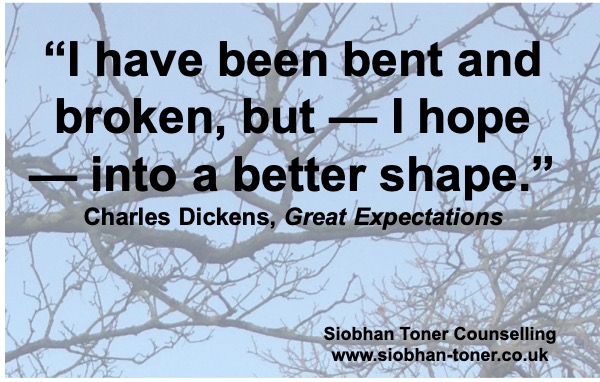
The figures in this old article, that half of people wouldn’t be comfortable talking about mental health issues at work is worrying but not a surprise. i can’t help but wonder if much has changed since then. Despite living through a global pandemic and the additional stressors that has brought I can’t help but feel a bit cynical. Even with work on raising awareness of mental health issues by high profile individuals.
Too many people still struggle without adequate support because of the stigma and an idea that they shouldn’t need it. Or worse, that their issues aren’t as bad as other people so they don’t feel they justify getting help. There are also difficulties accessing support if someone is willing to go looking. Certainly within the UK waiting lists for the NHS are long. Workplaces do sometimes offer Employee Assistance Programmes but these can be very time limited. I am aware that accessing private practice and the costs involved aren’t within the reach of a lot of people. I will be adding more resources for people who need them but they do change so its harder to keep them up to date.
The bottom line is that anyone can find themselves in need of support, either through illness or events the life throws at them. It takes enormous courage to reach out and look for it.
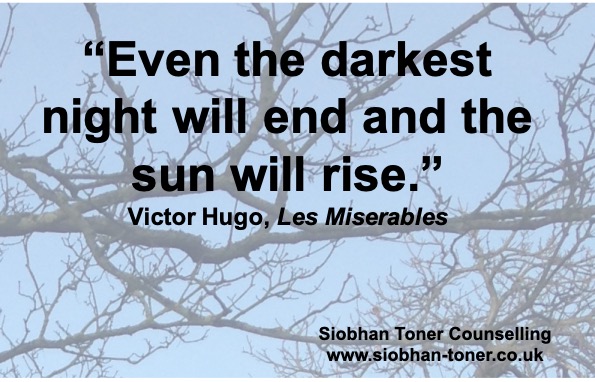
I was reminded today about this talk I found years ago.
Warning, before clicking the link please be aware it is quite sweary. Link to talk.
The message I really took away from it is one I see again and again in my work – how much we do because we feel we should.
Should’s – they create so much anxiety and guilt. We do things we don’t want to because of them, feel guilty if we don’t do them, or even feel guilty if we do them and don’t enjoy it (despite knowing we wouldn’t enjoy them in the first place).
Why is it so hard to refuse? What does saying no mean to us? For each of us there is probably a different story, but I would assume a lot of them are rooted in childhood.
What judgement was put on you when you refused? What value on you as a person if you didn’t want to do something?
What impact does the thought of refusing something have for you now? How cluttered is your life because of it? How anxious?
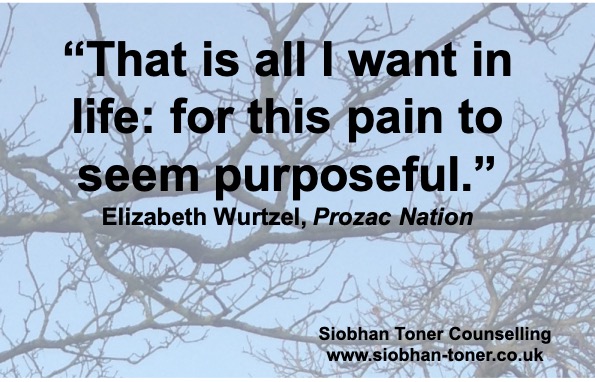
You may question why people go to therapy? What is different about talking to a counsellor than talking to your friends and family?
Quite often our loved ones are great to talk too but they may find it difficult to sit with you when you are emotional. They may want to ‘fix’ you and make you feel better or get defence and not hear you properly.
For example, if someone you care about is upset and crying, what do you do? Offer comfort, hug them, pat their hand or arm, tell them it will be ok? These are all normal responses – but they won’t really happen in therapy. We let the client carry on crying and work through it. It may seem harsh, but it’s about giving the upset space. Otherwise we can end up suppressing it to make other people feel better.
One of my clients feedback years ago taught me how powerful this was “you let me cry, you didn’t try to stop me”.
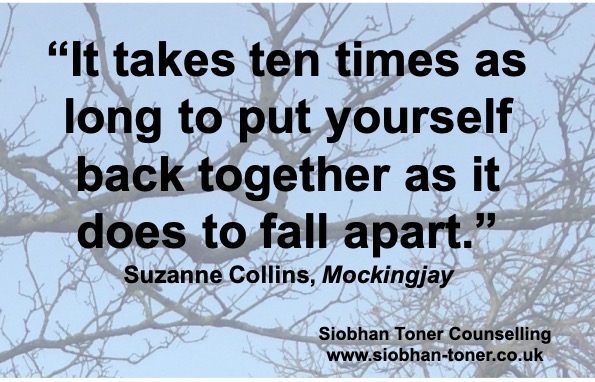
What’s it really like to have counselling?
This is the question that so many people have before they start.
We see so many portrayals of it in the media, some positive, some not.
It doesn’t have to include a couch! My old office for my face to face work did have one but every client just sat on it.
In our initial assessment I will have some things that we need to cover. The first is around my contract and boundaries of confidential. This is to ensure you know what you are working and ensures you feel safe with those. It wouldn’t be ethical for me to let you tell me loads of things that I then have to disclose as you didn’t know I would have to do that.
The second thing I like to get a feel for is why you want to come to counselling. Not everyone says all the things that are bothering them as this point but it does give me an opportunity to assess if I have the skills and experience to work with you. Again this is about keeping you safe and not offering you something I can’t work with. For example I am not trained to deliver exposure therapy so I am not the person to help you overcome a fear of flying or spiders.
The first sessions usually go one of two ways. The client comes and has loads they want to say and have someone hear so I don’t say much at all.
Alternatively the client isn’t sure where to start and I might invite them to talk about themselves by asking them general questions about themselves and their life.
Each client is unique so it can take time for us to get to know each other better.
Counselling is all about the relationship between us; I don’t mean that the client is going to hear all about who I am as well. I mean that the client can see if they feel able to share their problems with me. If they can’t do that then the therapy can only go so far.
This relationship can take time which is why I ask clients to give it a few sessions unless they absolutely hate it or they already have got what they want out of it.
The more we build our relationship the more the client is able to explore what is going on for them and find some healing.
Why does this experience of therapy brings about change though, that’s another big question. It doesn’t always, let’s be honest about that. Sometimes it the relationship not working as effectively as it could; sometimes it’s just not the right point in the clients life. Too much may be going on to give the therapy the space it needs or they don’t have the best support network around them.
Yet when all these things do come together clients can make amazing changes.
The process is enhanced by have someone who is there for you completely for a fixed period of time every week. It becomes all about you which is quite a unique experience for most of us yet once we become used to it then the work really begins.